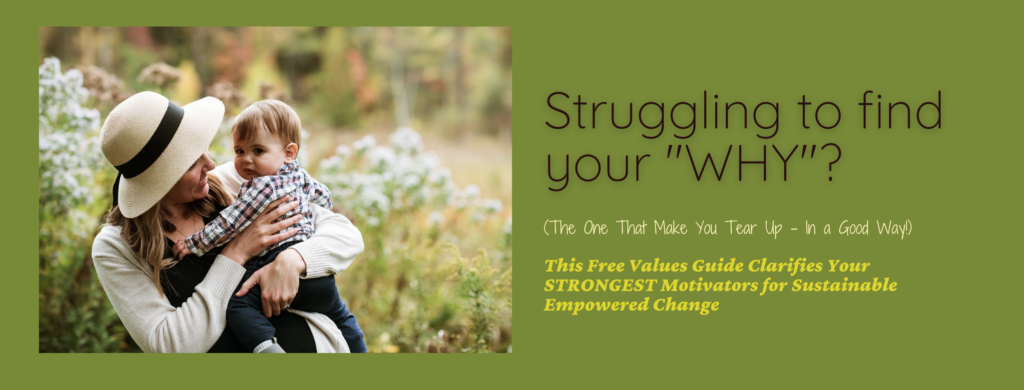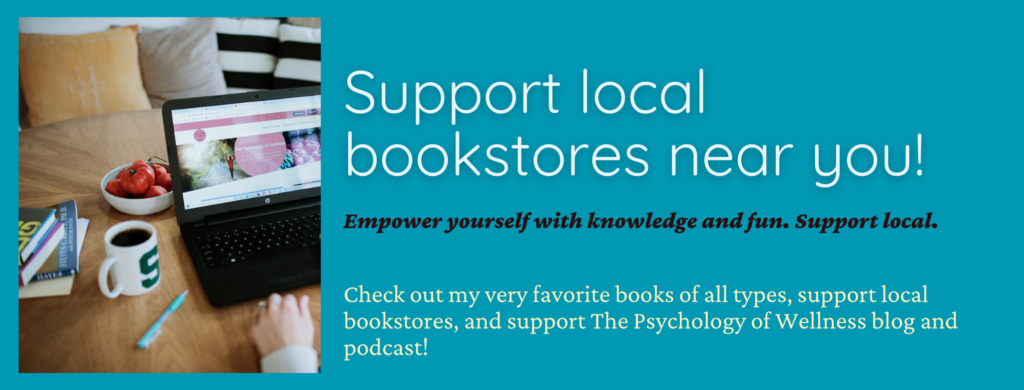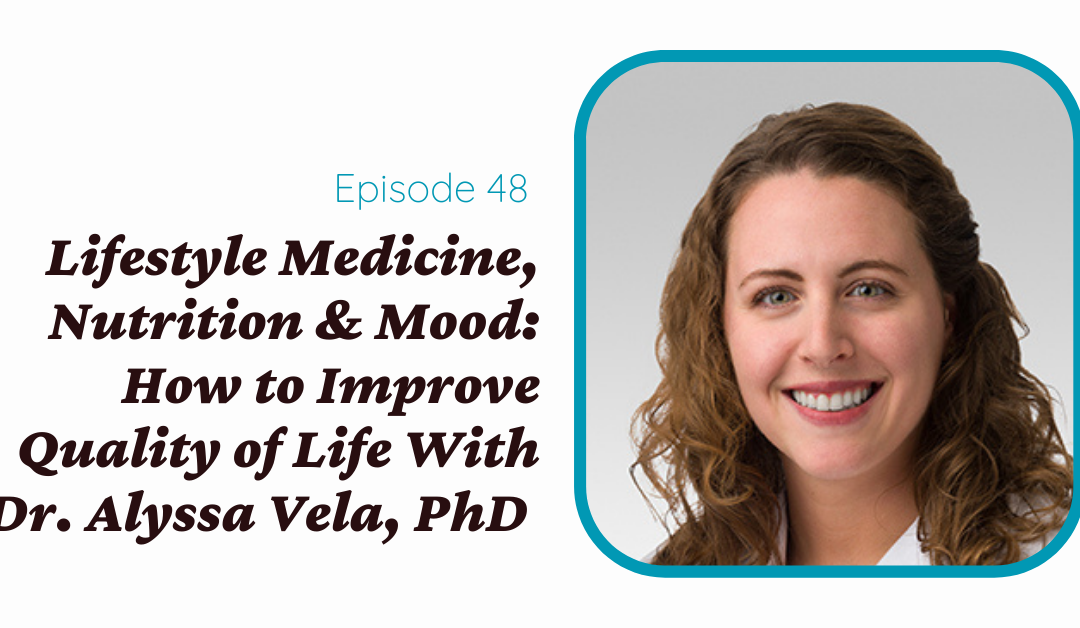Podcast: Play in new window | Download
Subscribe to The Innovative Therapist Podcast! Apple Podcasts | Spotify | RSS | More
Episode 48. I’m super excited about this conversation today! One of my goals on this podcast is to bring on a variety of viewpoints, not just the exact same anti-diet message. I think it’s essential we have conversations about what to do, versus just what not to do (not having diet mentality for example!). I also think we need to keep having productive conversations across a variety of disciplines and we talk about some really cool ones in this episode! I’m really grateful to Alyssa for coming on and sharing her expertise with us this week. Let’s dive in!
Dr. Vela is an Assistant Professor of Surgery and Psychiatry at the Northwestern Feinberg School of Medicine. Dr. Vela earned a PhD in Health Psychology at the University of North Carolina at Charlotte where she studied culturally-adapted lifestyle interventions for women with disordered eating and diabetes. She completed her internship/residency in Health Psychology at the Louis Stokes Cleveland VA Medical Center, and a fellowship in Clinical Health Psychology with an emphasis in medical education with the Michigan Center for Advanced Psychology Training in affiliation with Michigan State College of Human Medicine. She completed her board certification in lifestyle medicine in 2020.
Alyssa’s main area of research and clinical interest is lifestyle interventions for cardiometabolic health and she has a strong passion for helping people change their lifestyles and health behaviors so they can live their best lives. She is also passionate about addressing health disparities, and providing culturally-sensitive care to all patients, and is actively involved in diversity, equity, and inclusion work and education at Northwestern.
In this interview, we cover:
- What is health psychology/behavioral medicine?
- What is lifestyle medicine?
- What is nutritional psychiatry? What do we know about the impact of nutrition and it’s impact on mental and emotional well-being?
- What the pros and cons are of thinking about food as medicine?
- What do we need to know about how research applies to diverse samples?
Want To Support Local Bookstores Near You?
Buy your books from Bookshop! Support local bookstores near you and this blog and podcast and help prevent Amazon from completely squashing the local book market.
Are You New Here?
Welcome! I’m so glad to have you. You might be wondering what this blog and podcast are all about.
We relate everything in this podcast back to motivation, but not the hustle and grind kind. Truly sustainable motivation that keeps you feeling energetic and engaged in your life for the long haul. We talk about why “I’m just not motivated” is a myth, and why the TYPE of motivation you have is so important to fully understand. If you are ready to learn about motivation and respecting your body in an effective way so that you can live a life you truly love, you are in the right place.
Check out the Foundational Episodes of the Motivation Made Easy Podcast here!
- Introduction: What is this podcast all about?
- Episode 1: Want to Get & Stay Motivated? A Crash Course on Motivation, Weight Loss, and Health
- Episode 2: How Dieting Steals Our Motivation
- Episode 3: How To Get Motivated To Improve Your Health (Motivation 101)
- Episode 4: How to Transform Health Fears Into Forward Progress
Do you ever worry that you are wasting your life?
I definitely did. In fact, I wrote that in my journal many years ago when I was in the middle of the diet-binge roller coaster ride.
- I woke up every day thinking about food, my body, and what I would eat that day to “be healthy”
- The notebooks I had filled with calories and points could fill up a spare bedroom
- Social events and vacations immediately prompted the thought “they will notice I gained weight” or “I need to lose weight by then”
- Deep down I knew I wasn’t living life the way I wanted to, but I didn’t know how to pull myself out of it.
If this is you, I want you to imagine what it would feel like to feel empowered in your body and proud of your choices on a consistent basis. I promise you, it isn’t too late.
Dieting steals our motivation. It makes us ineffective. It keeps us spinning our wheels in a system that was never built to work.
If you are ready take the first step to motivating yourself with what matters to you, download my free Create Powerful Motivation guide (which is quite beautifully designed if I do say so myself), and walk through the 3 simple steps to create motivation that works for YOU in 15 minutes or less. You will get a simple formula to write ONE SENTENCE you can use to motivate yourself on a daily basis.
You can write it on your bathroom mirror, put on the background of your phone, or just read it and repeat it in your mind.
Look, I know how much it hurts to live a life worrying you are missing out, not stepping into the person you were truly meant to be, vibrant, passionate, curious, vulnerable, and brave.
You can listen to the podcast all day, but taking that first step, putting pen the paper (or typing on your phone) is required for true lasing change. It’s time to start living my friend.
It’s 100% free, so what are you waiting for? Grab your free copy of the guide today at DrHondorp.com/Motivate

As a health psychologist I like to say that my overall goal is to help people change their health behaviors or engage in the types of behaviors or change their thinking patterns in a way that supports their values and what matters most and ultimately supports their quality of life. That’s what we all want, live a life consistent with what we care about with who we care about.
– Alyssa Vela, PhD
Main Takeaways from This Conversation
- Health psychology is super cool. As health psychologists we aren’t biased at all. But in all seriousness, we believe strongly there’s a lot to be gained from understanding the psychology of humans and why they do what they do, their beliefs, attitudes and behaviors about their health. Because many times, how we think about something (e.g., how we feel about eating that kale salad) is almost always more important than the single behavior (whether or not we do it on a given day).
- Food as medicine – Helpful or harmful? It depends! On how the individual interprets that. Does it feel shaming and pressuring or that there’s some moral obligation to thing of it that way? Clearly unhelpful. Or does it feel empowering and hopeful to that person. These are the things we need to understand when we are communicating to patients about their health.
- Lifestyle medicine holds a lot of promise. Lifestyle medicine is a new emerging field that creates more spaces for these discussions and holds promise for creating an evidence-based interdisciplinary approach. Resources in life with this approach can be found at the resources page of The American College of Lifestyle Medicine website and also on the Healthy Living page at the The Society of Behavioral Medicine website.
- We must always be thinking about diversity and representation when considering health. Eating disorders or disordered eating happen in all races, body shapes and sizes. We have made some progress in this area, but we have a long ways to go. We need to continue to be curious and work to best understand how what we are doing applies, or does not apply to a variety of individuals, particularly those who are marginalized or underprivileged in terms of food and health care access.
- Positive nutrition habits for improving our mood is 100% worth considering. When I talk to people about how focus on weight loss strips them of any potential love for exercise (e.g., I only walk on the treadmill to burn calories, versus finding an exercise I actually like), they usually get it. However, when it comes to “internal motivation” for healthy eating, many times people have a hard time wrapping their heads around this. Like anything, we should first strip away the shame, guilt, and shoulds (what the anti-diet approaches helps us do) and then we can look at how certain foods make us feel. Remember that intuition can involve learning about nutrition and making choices that feel best for you. So you could learn about the evidence base behind plant based nutrition for gut health and disease risk and choose to try some plant-forward meals a few times a week, for example. People that exercise consistently usually have some quick benefit from it (they might say things like, “it’s my therapy”). Well, if we strip away the judgement about weight and body size, you may feel the same way about eating over time. You might say, “I really feel like having a burger, but when I eat the salad with shrimp at lunch my mood is so much better the rest of the day.” That’s internal motivation and way more likely to stick than, “I’m being good on my diet by eating this salad.”
Support Independent Bookstores Near You!
Did you know that that if nothing slows their momentum, Amazon will have almost 80% of the book market by the end of 2025?
Look, I love the convenience of Amazon, but I’ve got a super cool way that you can support local bookstores and my blog and podcast simply by buying books like you already do! You can choose any bookstore on the list in the US and Canada (they plan to expand to other counties in the future) OR you can just let the donation get split between all stores. As of this recording, they have raised 15 million dollars for local bookstores. On my bookshop, you will see my absolute favorite books related to health and wellness, courage and vulnerability, and even my favorite fiction and kids books!
My recent favorite related to improving the quality of our lives was Digital Minimalism. Our family actually has decided to do an optional screen free August to re-evaluate the role of screen time in our lives.
So if you believe in supporting local businesses, please consider buying your books through Bookshop from now on!
The Psychology of Wellness Bookshop Link.

Disclaimer: This blog and podcast is for informational and educational purposes only. It is not a substitute for individual professional advice or treatment, including medical or mental health advice. It does not constitute a provider patient relationship.
Disclosure: Using the Bookshop.org links in this post means that I would get an affiliate fee if you purchase from the online bookshop (this supports my business, and local bookstores too!).
Credit: This blog post was co-written and edited by Sarah Grace Rapoport, podcast and blog manager and Psychology of Wellness Intern, and Dr. Shawn Hondorp.
